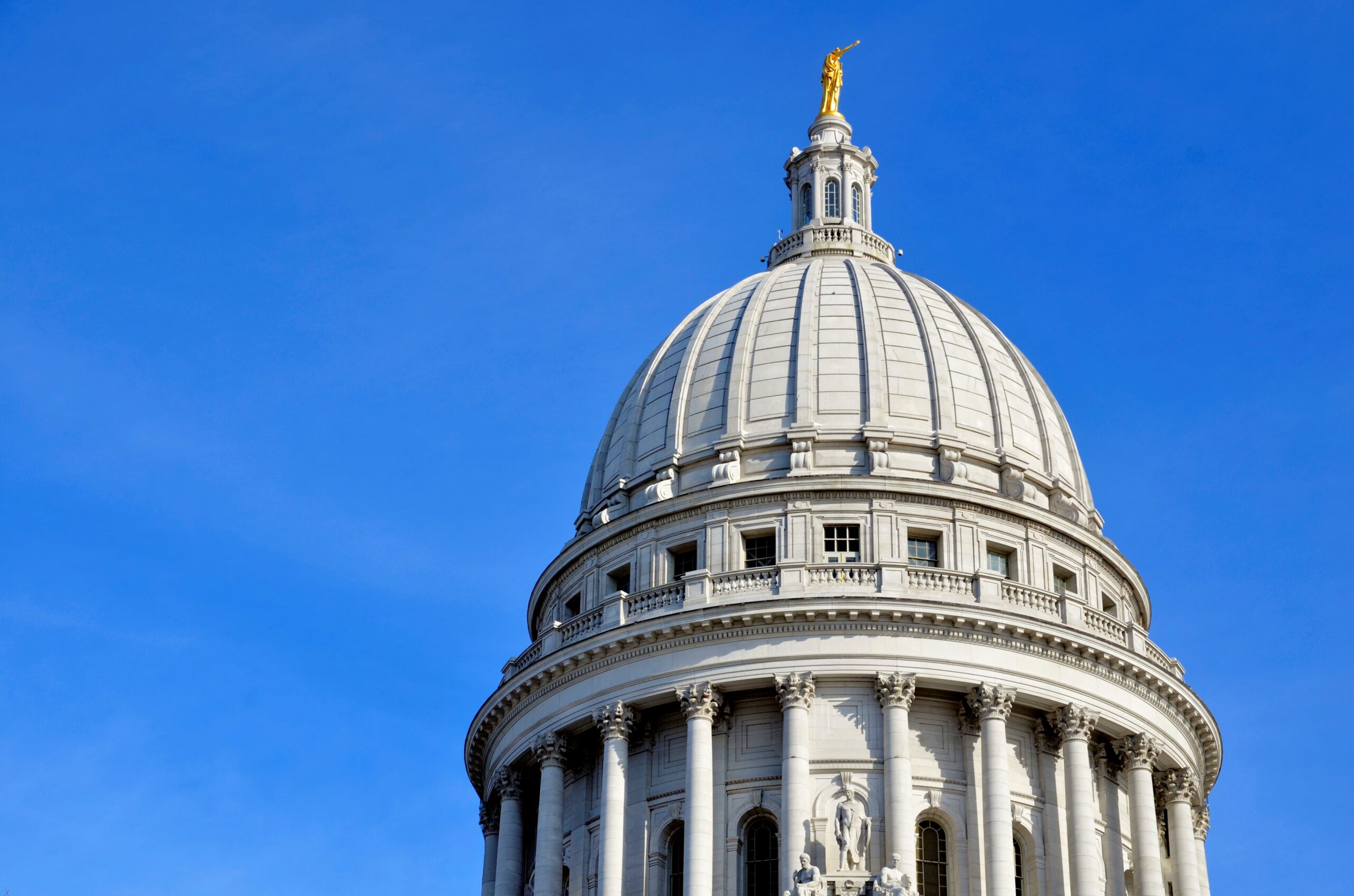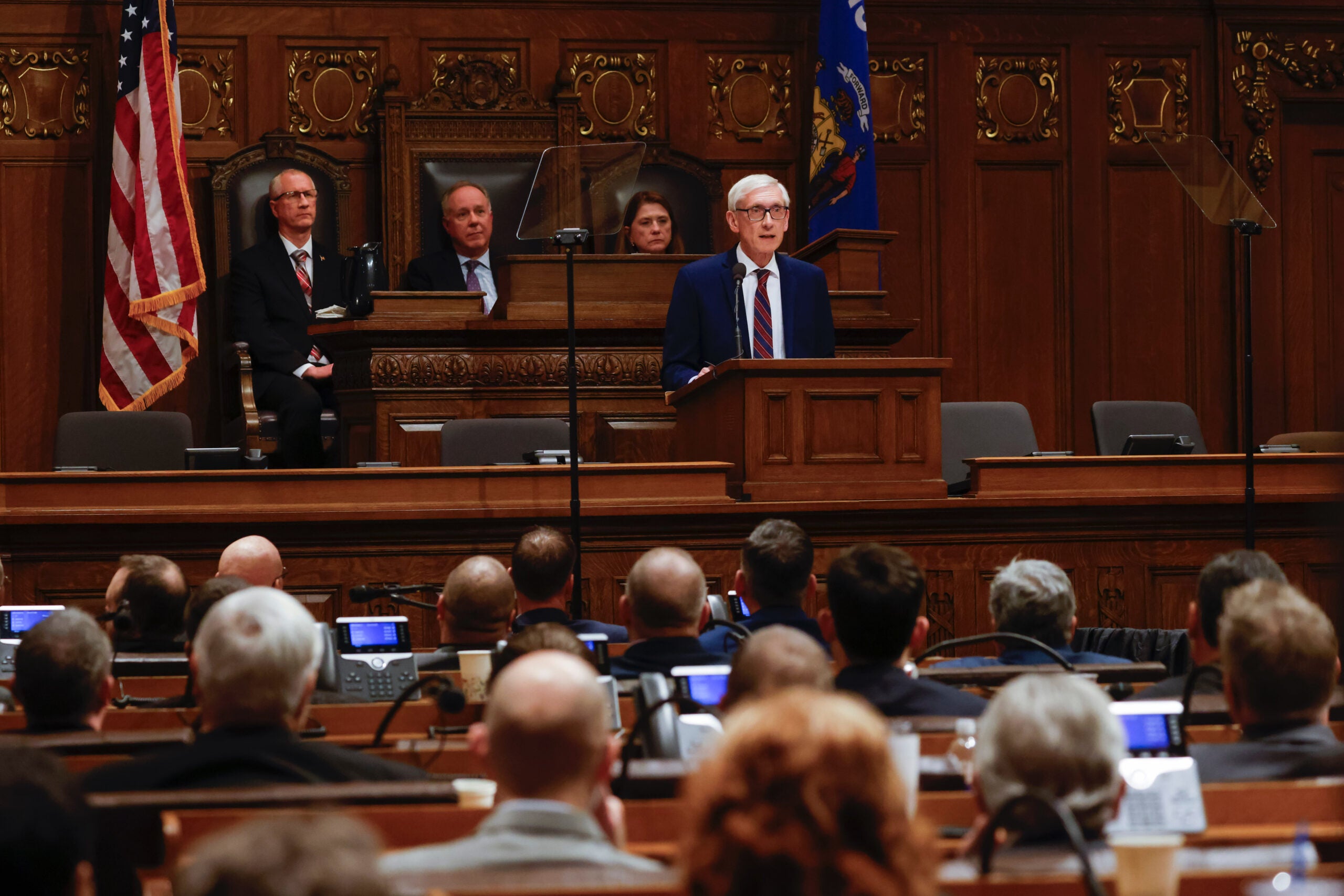Wisconsin state and local governments could receive more than $2.2 billion from the federal government as part of the $2 trillion stimulus package signed Friday to address the economic fallout caused by the new coronavirus.
The estimate was provided by the Legislature’s nonpartisan budget office Friday, the same day the U.S. House passed and President Donald Trump signed the Coronavirus Aid, Relief, and Economic Security (CARES) Act. Part of the act sets aside $150 billion in direct aid payments to state and local governments.
According to the Legislative Fiscal Bureau, Wisconsin could receive about $2.26 billion of that funding based on its population. About $1.9 billion would go directly to state government, according to the Fiscal Bureau.
Stay informed on the latest news
Sign up for WPR’s email newsletter.
The rest of Wisconsin’s direct aid payments would go to local governments with populations greater than a half-million people. They include the city of Milwaukee ($102.7 million), Milwaukee County ($164.5 million) and Dane County ($93.4 million).
The Fiscal Bureau memo suggested it was unclear whether states could use the funding to fill budget shortfalls that result from the coronavirus pandemic. Other outstanding questions include whether the state could use the funding to help cities and counties with populations smaller than a half-million people.
The memo was prepared at the request of Assembly Speaker Robin Vos, R-Rochester, and Sen. Majority Leader Scott Fitzgerald, R-Juneau. In a statement released Friday night, Vos said the funding should focus on emergency health care.
“These dollars must be used to help acquire ventilators and more personal protection equipment as well as help public health departments and health care providers all over the state,” Vos said.
Vos also said the funds should help offset the economic pain brought about by social isolation, which has forced many businesses to close their doors and sent jobless claims skyrocketing.
“We know the state will experience a huge loss in tax collections,” Vos said. “This will cause many unanticipated financial difficulties. The substantial federal allocation must be spent appropriately to help those who have been most affected by this shutdown.”
Asked for a comment Friday night, Democratic Gov. Tony Evers’s office had not addressed the memo as of Saturday morning.
Before the coronavirus began its spread across the United States, Evers and Republicans had been sparring over how to use a projected surplus in Wisconsin’s state budget, with Evers calling for increased school spending and Republicans pushing a tax cut, which the governor vetoed. But that surplus was based on an estimate of tax revenue growth that was conducted in January, making it obsolete now.
An unprecedented surge in unemployment claims and a dramatic slowdown in many sectors of the state’s economy could devastate Wisconsin’s budget, although the full depth of the economic fallout is not yet clear.
Wisconsin Public Radio, © Copyright 2025, Board of Regents of the University of Wisconsin System and Wisconsin Educational Communications Board.





